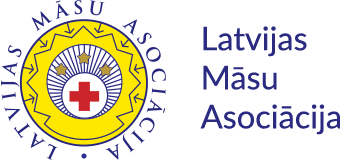21 Aprilis 2022 EFN Preses relīze
”EFN nacionālās māsu asociācijas, kas pārstāv vairāk nekā 3 miljonus ES māsu, 2022. gada 21. aprīlī tikās ši pavasara EFN Ģenerālajā asamblejā.
Pateicoties lielajām pārmaiņām mūsu sabiedrībā, māsām vairāk nekā jebkad agrāk ir galvenā loma labāku veselības rezultātu sasniegšanā. Tāpēc komisāre uzsvēra, cik svarīgi ir koncentrēties uz māsu darbinieku kvalifikācijas paaugstināšanu, jo īpaši saistībā ar Eiropas aprūpes stratēģijas pastāvīgo izstrādi.”
114th General Assembly of the European Federation of Nurses Associations (EFN)
The EFN National Nurses Associations, representing over 3 million EU nurses, met virtually on 21 April 2022 for their Spring EFN General Assembly.
The EFN Members welcomed the EU Commissioner for Jobs & Social Rights, Nicolas Schmit, and exchanged views on the OSH strategic Framework, specifically concerning health professionals, and on the follow up of the Carcinogens and Mutagens Directive IV agreement, notably on the hazardous medicinal drugs. Commissioner Schmit raised that the healthcare sector is fundamental in society and the economy, and nurses play a key role in the resilience of the ecosystem, emphasising the human dimension of service delivery. Due to the major changes in our society, nurses more than ever before, play a central role to reach better health outcomes. Therefore, the Commissioner stressed the importance of focussing on upskilling the nursing workforce, especially within the ongoing development of the European Care Strategy.
Furthermore, the EFN Members took the opportunity to listen to Margrieta Langins, Nursing and Midwifery Policy Adviser, WHO Regional Office for Europe, on the roadmap to guide the implementation of the Global Strategic Directions for Nursing and Midwifery in the WHO European Region, which focuses on education, jobs, service delivery and leadership. She emphasised the use of the word ‘task optimalisation’ instead of ‘task shifting’. The EFN, as Non-State Actor, will work closely with the WHO Europe Region to implement the WHO roadmap for nursing and midwifery.
With the war in Ukraine, the EFN and ICN have been collaborating closely to support the nurses in Ukraine, and its neighbouring countries’ members’ Associations helping the refugees, the Ukrainian nurses’ still in Ukraine and those who have left the country. The EFN Members got a clear insight on how the EFN and ICN provide concrete support and which initiatives at local, national, EU and international levels have been put in place to support those fleeing the war. “The Ukraine War has turned around peoples’ life and frontline nurses work in Ukraine and neighbouring countries, and as such EFN and ICN have turned around their focus and priorities consequently. Howard Catton and Paul De Raeve have worked very closely to find ways to support EFN members in these very difficult times”, said EFN President, Elizabeth Adams. The EFN members strongly agree that supporting Ukrainian nurses in employment and competency development (Bridging Courses) will be key to comply with EU Legislation (Directive 2013/55/EU).
As part of EFN Strategic and Operational Lobby Plan 2021-2027, the EFN Members discussed and approved three key Policy Statements: 1/ Advanced Practice Nursing, 2/ Building and Sustaining a Resilient Nursing Workforce, and 3/ Nursing Planetary Health. These Policy Statements will support the EFN in its lobby work towards the EU Institutions in advancing the nursing profession. The EFN is eager to get political results within the EU Institutions and this General Assembly was extremely important from that perspective.
In addition, the EFN Members shared information on the developments on education, workforce and quality & safety, including digitalisation, at national level. Many crucial challenges in the Member States were reported. It is key EU health policies reflect the nurse’s reality to better shape fit-for-purpose solutions and initiatives in the healthcare sector. The EFN Members reaffirmed their commitment and determination to ensure that EFN EU policy agenda priorities on education, workforce, quality and safety, remain high on the EU political agenda.
Nurses are best placed to deliver safe, high-quality, effective and efficient health services and make health ecosystems more resilient. Positioning nursing more central to health policy and technology design and ensuring that nurses can use their skills, including e-skills, to their full capacity, can lead to improved citizens health and well-being, enabling the achievement of a resilient healthcare ecosystem. Therefore, national governments should use the COVID-19 funds, the EU Recovery and Resilience Funds to invest in nursing education and workforce.
